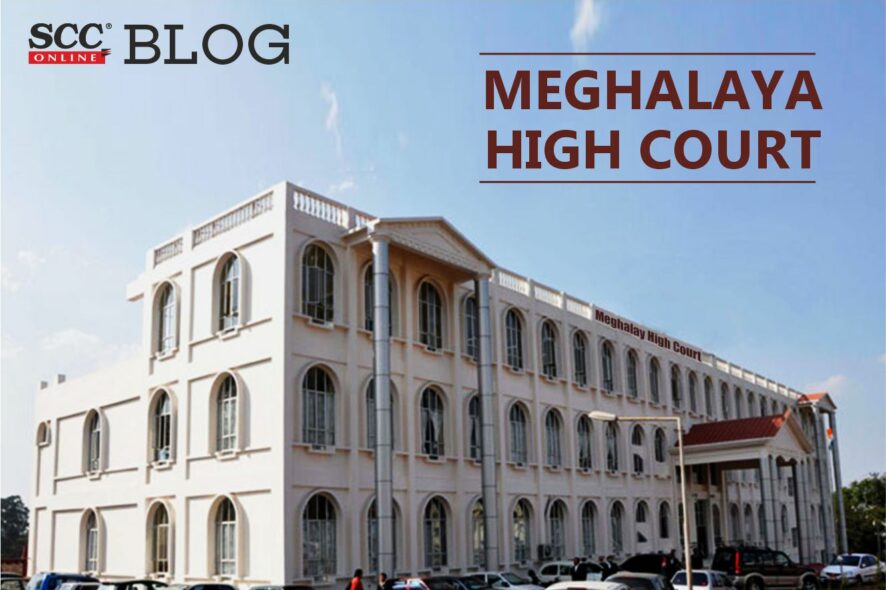Meghalaya High Court: W. Diengdoh, J. allowed a petition where a man was arrested under the provisions of the Protection of Children from Sexual Offences Act, 2012 (‘POCSO Act’) for allegedly having ‘consensual sex’ with his minor wife.
Petitioner 1(husband) and 2 (wife) were in a love relationship since the year 2018 and in the year 2019 started living together as husband and wife with the knowledge and consent of the family members of petitioner 2. The relevant fact being that petitioner 2 was about 16 years old at that time. In October 2019 she stated complaining of weakness with bouts of vomiting following which she was taken to the Hospital. After conducting the required examination on 22-10-2019 it was confirmed that the petitioner 2 was pregnant for 16 weeks 4 days. As is duty bound, the Medical Officer informed the petitioner 1, the petitioner 3 and the uncle of the petitioner 2 that they need to report the matter to the police station as the petitioner 2 is still a minor.
Consequently, an FIR was lodged by petitioner 3 and a case under Section 5(j) (ii) of the Protection of Children from Sexual Offences (POCSO) Act, 2012 was registered. Petitioner 1 was arrested after the investigation.
Counsel for the appellant led this Court to the statement of the petitioner 2 made under Section 161 Criminal procedure Code, 1973 and has submitted that the petitioner 2 has confirmed that she was in a relationship with the petitioner 1 since 2018 and has had physical relationship with him on several occasions and that too, with her consent, coupled with the fact that they were now staying together as husband and wife. She reiterated this in her statement under Section 164 CrPC and even in her evidence before the Special Court. It was also further submitted that in the meantime the petitioner 1 and 2 have solemnized their marriage on 30-05-2022 on petitioner having attained the age of majority.
The Court remarked that the procedure for trial under the POCSO Act is in accordance with the Code of Criminal Procedure, 1973 and as such, the High Court, if it chooses to interfere with any proceeding under the POCSO Act can do so by exercising its inherent power under Section 482 of the CrPC.
The Court looking at the facts at hand observed that in the event it is apparent that a young couple are in a relationship where love is the deciding factor even to the extent that it has culminated into a marriage relationship, it may be the case that in such a relationship even if the girl involved is legally a minor, if she has the capacity to procreate and her age is perhaps ranging from about 16 to 17 years and more but below 18 years, it would not shock their conscience if hypothetically speaking such a girl enters into a marriage relationship on her own free will, as oppose to a child of about 12 or 13 years voluntarily entering into a marriage relationship.
The Court relied on Skhemborlang Suting v. State of Meghalaya, 2022 SCC OnLine Megh 66 and Ranjit Rajbanshi v. State of W.B., 2021 SCC OnLine Cal 2470 and stated that as the present case is at the evidence stage, this Court can exercise its inherent power to ensure ends of justice is met.
It would be an injustice to separate or to divide a well knitted family unit.
Thus, the Court was convinced that the petitioners have made out a case for quashing of the said proceedings in Special (POCSO) Case and consequently the petition was allowed.
[Kwantar Khongsit v. State of Meghalaya, 2022 SCC OnLine Megh 393, decided on 10-08-2022]
For the Appellants : A. Syiem
For the Respondents : H. Kharmih
*Suchita Shukla, Editorial Assistant has reported this brief.







